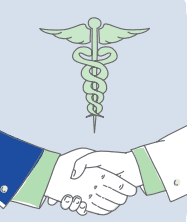Financial relationships between hospitals and physicians must be both commercially reasonable and at fair market value to meet regulatory requirements.
Ensuring compliance with these requirements remains critical because failure to do so could invoke sanctions and penalties related to the Stark Law, the Anti-Kickback Statute, the False Claims Act, and certain Internal Revenue Service provisions related to 501(c)(3) status. A thorough understanding of these requirements is necessary to ensure compliance in transactions between hospitals and physicians. While valuators and healthcare entities have refined fair market value assessments over the past several years, the concepts and methodology for determining commercial reasonableness on its own terms continue to evolve.
PYA’s latest whitepaper, “Commercial Reasonableness: Defining Practical Concepts and Determining Compliance in Healthcare Transactions for Physician Services,” identifies key factors that should be assessed and considered to evaluate commercial reasonableness in healthcare transactions thoroughly and practically.
For additional information about PYA’s Fair Market Value and Commercial Reasonableness services, contact the authors listed below.
WE ARE REQUIRED BY IRS CIRCULAR 230 TO INFORM YOU THAT THE FOLLOWING DISCUSSION WAS NOT INTENDED OR WRITTEN TO BE USED, AND IT CANNOT BE USED, NOR RELIED UPON, BY ANY TAXPAYER FOR THE PURPOSE OF AVOIDING ANY PENALTIES THAT MAY BE IMPOSED UNDER FEDERAL TAX LAW. THE ADVICE WAS WRITTEN TO SUPPORT THE PROMOTION OR MARKETING OF THE TRANSACTIONS OR MATTERS ADDRESSED IN THE DISCUSSION. EACH TAXPAYER SHOULD SEEK ADVICE BASED ON ITS PARTICULAR CIRCUMSTANCES FROM AN INDEPENDENT TAX ADVISOR.


